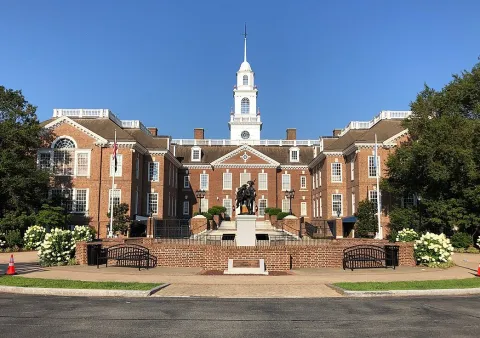Quality, Access, and Affordability
When planning for retirement, healthcare is one of the most critical factors to consider. As we age, medical needs tend to increase, making access to quality healthcare services essential for maintaining a good quality of life. The availability of skilled doctors, hospitals, and specialists, as well as ease of access to routine and emergency care, can significantly impact your overall well-being during retirement.
Affordability is another crucial element, as healthcare costs can consume a significant portion of a retiree’s budget. States with lower out-of-pocket expenses, prescription drug costs, and insurance premiums can help stretch retirement savings. Additionally, evaluating the quality of healthcare, including patient outcomes, hospital safety, and preventive care options, ensures that retirees receive the best care possible.
Choosing a retirement location with strong healthcare support can also provide peace of mind. By understanding which states rank highest in healthcare quality, access, and affordability, retirees can make informed decisions that enhance their health, security, and overall satisfaction during their golden years.
1 | Hawaii
Access to quality healthcare is a crucial consideration for retirees, and Hawaii offers a range of healthcare services and facilities. The state boasts several well-regarded hospitals and medical centers, particularly on the island of Oahu. However, healthcare availability can be more limited on the smaller, more remote islands, where residents may need to travel to Oahu for specialized care.
Compared to the national average, Hawaii's healthcare system is generally good, but the availability and convenience of services can vary depending on the location. Retirees should consider proximity to healthcare facilities when choosing where to live in the state.
2 | Massachusetts
Massachusetts is renowned for its healthcare system, boasting some of the best hospitals and medical facilities in the country. The state is home to world-class institutions like Massachusetts General Hospital and Brigham and Women's Hospital, offering advanced medical care and specialized services. The state's comprehensive healthcare system, combined with a high number of healthcare providers per capita, ensures that retirees have excellent access to medical care.
Massachusetts ranks exceptionally high in healthcare quality and accessibility, providing retirees with peace of mind and comprehensive care options.
3 | Connecticut
Connecticut is home to some of the best healthcare facilities in the country, including Yale New Haven Hospital and Hartford Hospital. The state's healthcare system is renowned for its high standards of care, advanced medical research, and availability of specialized services.
The quality of healthcare in Connecticut surpasses the national average, with a high density of healthcare providers and specialists. This ensures that retirees have access to comprehensive medical care, including preventive services, chronic disease management, and emergency care.
4 | New Jersey
New Jersey offers excellent access to healthcare, with a higher-than-average number of physicians per capita and numerous top-rated hospitals. The state's healthcare facilities are renowned for their quality, with several hospitals specializing in geriatric care and chronic conditions often affecting older adults. The proximity to world-class medical institutions in nearby New York and Philadelphia also provides residents with access to specialized care.
The state ranks well in terms of health insurance coverage, with a variety of Medicare Advantage plans available to retirees. However, healthcare costs in New Jersey can be higher than the national average, making it important for retirees to consider their healthcare needs and budget accordingly.
5 | Rhode Island
Healthcare: Rhode Island offers good access to healthcare, with several top-rated hospitals and healthcare facilities. The state has a high number of primary care physicians per capita and a strong focus on healthcare services for seniors. The proximity to world-renowned medical centers in nearby states further enhances healthcare access.
National Comparison: Rhode Island ranks well above the national average in healthcare quality and accessibility, particularly for seniors. Its healthcare system is considered one of the strengths of the state.
6 | California
California is home to some of the best healthcare facilities in the United States, including renowned hospitals and medical centers. The state offers a wide range of medical services and specialists, making it a suitable place for retirees with specific health needs.
Compared to the national average, California has a higher concentration of top-tier healthcare providers. However, the cost of healthcare can be higher, particularly for those without comprehensive insurance coverage.
7 | Maryland
Maryland is home to some of the nation's top healthcare institutions, including the renowned Johns Hopkins Hospital and the University of Maryland Medical Center. The state offers a wide range of medical services and specialized care, making it a favorable location for retirees needing healthcare services.
Comparison to National Average: Maryland excels in healthcare access and quality, often ranking above the national average. The state's healthcare infrastructure is robust, providing residents with excellent care options.
8 | New York
New York State is home to some of the best healthcare facilities in the country. In New York City, world-renowned hospitals like NewYork-Presbyterian and Mount Sinai offer cutting-edge medical care. Other regions, such as Buffalo, Rochester, and Albany, also have excellent hospitals and healthcare systems.
For retirees, access to quality healthcare is a crucial consideration, and New York State does not disappoint. The state’s healthcare infrastructure is robust, with many options for both primary and specialized care. Additionally, the state offers various programs to assist seniors with healthcare costs, making it easier for retirees to manage their health as they age.
9 | Delaware
Access to healthcare is a crucial consideration for retirees, and Delaware performs well in this area. The state has a network of reputable hospitals and medical centers, including ChristianaCare in Newark, one of the top hospitals in the region. Additionally, Delaware is within driving distance of major medical centers in Philadelphia and Baltimore, providing access to specialized care when needed.
The state's healthcare system generally offers quality services, with a focus on preventive care and wellness programs. Delaware also has a growing number of healthcare facilities and specialists catering specifically to the needs of seniors.
10 | Washington
Washington State provides excellent access to healthcare, with numerous high-quality hospitals and medical facilities. The state is home to some top-rated medical centers, such as the University of Washington Medical Center and Virginia Mason Medical Center, which are renowned for their specialized care and research.
Compared to the national average, Washington offers more healthcare providers per capita and better access to preventive services. The state also has a robust healthcare infrastructure, with a strong emphasis on senior care and wellness programs. However, healthcare costs can be higher, especially in urban areas, but the quality and availability of services often justify the expense.
11 | Pennsylvania
Pennsylvania is home to several top-rated healthcare institutions, including the University of Pennsylvania Health System and UPMC (University of Pittsburgh Medical Center). The state offers a robust healthcare system with a wide range of medical services and specialists. Access to quality healthcare is crucial for retirees, and Pennsylvania generally performs well in this area.
Compared to the national average, Pennsylvania has a higher number of healthcare providers per capita, particularly in urban areas. However, access to specialized care can be more limited in rural regions. Overall, the state provides good healthcare options, which is an essential factor for retirees.
12 | Colorado
Access to quality healthcare is a crucial consideration for retirees. Colorado offers a strong healthcare system, with several top-ranked hospitals and medical facilities, particularly in the Denver metropolitan area. The state has a higher number of healthcare providers per capita compared to the national average, ensuring that residents have access to a range of medical services. Additionally, Colorado has made strides in healthcare innovation and preventative care, contributing to its residents' overall health and wellness.
13 | New Hampshire
Access to quality healthcare is a crucial consideration for retirees, and New Hampshire delivers in this area. The state has a robust healthcare system with numerous hospitals, clinics, and specialized care facilities. Dartmouth-Hitchcock Medical Center, one of the state's leading healthcare institutions, offers top-notch medical care and research.
Compared to the national average, New Hampshire's healthcare system is well-regarded, with many facilities receiving high marks for patient care and satisfaction. However, healthcare costs can be higher than the national average, particularly for specialized or long-term care. The state's rural areas may have limited access to healthcare providers, but overall, retirees can expect a high standard of medical care.
14 | Utah
Access to quality healthcare is a crucial consideration for retirees, and Utah performs well in this regard. The state has several top-rated hospitals and healthcare systems, particularly in the Salt Lake City area. The University of Utah Health system is nationally recognized for its research and patient care.
While healthcare costs in Utah are generally on par with the national average, the quality of care and availability of specialized services are notable. The state's healthcare infrastructure is well-developed, offering a range of services, from routine care to specialized treatments.
15 | Virginia
Virginia offers excellent access to quality healthcare, with a network of well-regarded hospitals and medical facilities. The state is home to several top-ranked medical institutions, including the University of Virginia Medical Center and VCU Medical Center. Additionally, Virginia's proximity to Washington, D.C., provides access to some of the nation's best healthcare providers.
Compared to the national average, Virginia's healthcare system is highly regarded, offering a wide range of services and specialties. The state also has a high number of physicians per capita, ensuring that retirees have access to medical care when needed.
16 | Minnesota
Minnesota is renowned for its high-quality healthcare system. The state is home to some of the nation's top hospitals and medical centers, including the Mayo Clinic in Rochester, which is globally recognized for its excellence in medical care. The Twin Cities also offer a wide range of healthcare services, with numerous hospitals and specialty clinics.
Minnesota's healthcare quality exceeds the national average, with residents enjoying better-than-average access to primary care and specialty services. The state's healthcare system emphasizes preventive care and wellness, making it an ideal place for retirees seeking comprehensive and accessible medical care.
17 | Vermont
Vermont offers access to high-quality healthcare, with several reputable hospitals and medical centers located throughout the state. The University of Vermont Medical Center in Burlington is a leading healthcare provider, offering comprehensive services and specialized care. The state's healthcare system is known for its emphasis on preventive care and community health.
Compared to the national average, Vermont has a higher proportion of primary care physicians, which contributes to better access to healthcare services. However, due to the state's rural nature, some areas may have limited access to certain specialists, necessitating travel for specific treatments. Overall, Vermont's healthcare system is robust, providing retirees with the medical care they need.
18 | Idaho
Access to quality healthcare is a critical factor for retirees. Idaho offers a range of healthcare options, with hospitals and medical facilities in major cities like Boise, Idaho Falls, and Coeur d'Alene. The state is home to several well-regarded medical centers, including St. Luke's Health System and Kootenai Health.
However, Idaho does face some challenges in healthcare access, particularly in rural areas where facilities and specialists may be limited. Compared to the national average, Idaho has fewer healthcare providers per capita, which can result in longer wait times and travel distances for specialized care. Despite these challenges, many retirees find the healthcare system in Idaho to be sufficient, especially if they live in or near urban centers.
19 | Maine
Access to quality healthcare is a crucial factor for retirees, and Maine offers a robust healthcare system. The state has several highly-rated hospitals and medical facilities, particularly in larger cities like Portland and Bangor. Maine also has a higher-than-average number of healthcare providers per capita, ensuring that residents have access to a wide range of medical services.
While the quality of healthcare in Maine is generally high, some rural areas may have limited access to specialized care. However, the state's healthcare infrastructure is continuously improving, with ongoing investments in telemedicine and transportation services to connect residents with necessary medical resources.
20 | Arizona
Access to quality healthcare is a significant consideration for retirees, and Arizona generally fares well in this regard. The state boasts a range of healthcare facilities, including top-ranked hospitals and specialized care centers. Major cities like Phoenix and Tucson offer comprehensive medical services, including advanced treatments and specialized care for seniors.
Compared to the national average, Arizona's healthcare system is considered reliable and accessible. The state has a growing number of healthcare providers and retirement communities with integrated medical services. Additionally, Arizona's warm climate is beneficial for those with respiratory issues or arthritis.
21 | Iowa
Access to quality healthcare is essential for retirees, and Iowa performs well in this regard. The state has a robust healthcare system, with several reputable hospitals and medical centers. University of Iowa Hospitals and Clinics, in particular, is nationally recognized for its medical specialties.
Iowa's healthcare costs are generally lower than the national average, making it an affordable option for retirees. The state also has a high number of healthcare professionals per capita, ensuring that residents have access to necessary medical services.
22 | Wisconsin
Access to quality healthcare is a crucial consideration for retirees, and Wisconsin excels in this area. The state is home to several top-ranked hospitals and healthcare systems, offering a wide range of medical services. Cities like Madison and Milwaukee have highly regarded healthcare facilities, ensuring that residents have access to top-tier medical care.
Comparison to National Average: Wisconsin's healthcare system is rated above the national average, with excellent access to specialists and medical facilities. The state's focus on healthcare innovation and patient care contributes to its high rankings.
23 | Oregon
Oregon offers good access to quality healthcare, with several top-rated hospitals and medical centers, particularly in the Portland metropolitan area. The state's healthcare system is well-regarded, with a focus on preventative care and a growing emphasis on alternative medicine and holistic treatments.
Compared to the national average, healthcare costs in Oregon are higher, but the quality and accessibility of services are generally excellent. Retirees can expect comprehensive care, though it may come at a premium.
24 | North Carolina
Access to quality healthcare is a critical factor for retirees, and North Carolina offers excellent medical facilities. The state is home to renowned medical centers, such as Duke University Hospital, UNC Hospitals, and Wake Forest Baptist Medical Center. These institutions provide top-notch care and specialize in various medical fields.
Healthcare costs in North Carolina are generally close to the national average. Medicare acceptance is widespread, and there are numerous senior care facilities and services throughout the state. The presence of highly rated healthcare providers ensures that retirees have access to the care they need.
25 | Nebraska
Access to quality healthcare is a crucial factor for retirees, and Nebraska performs well in this area. The state is home to several reputable healthcare systems and hospitals, particularly in larger cities like Omaha and Lincoln. Nebraska's healthcare facilities are known for their high-quality care and patient satisfaction.
While rural areas may have fewer healthcare options, the state's telemedicine initiatives and outreach programs help bridge the gap. Compared to the national average, Nebraska's healthcare costs are relatively affordable, making it easier for retirees to manage their medical expenses.
26 | Florida
Access to quality healthcare is a critical consideration for retirees, and Florida excels in this area. The state has numerous top-rated hospitals and healthcare facilities, many of which specialize in geriatric care. Florida's large retiree population means that healthcare providers are well-versed in addressing the needs of older adults. Additionally, the state has a robust network of assisted living facilities and senior care services.
Comparison to National Average: Florida generally offers better access to healthcare services tailored to retirees compared to the national average. The state's focus on senior healthcare and its abundance of specialized facilities make it a standout choice for retirees.
27 | Alaska
Healthcare access and quality in Alaska can be a concern for retirees. The state's vast geography and sparse population make it challenging to provide comprehensive healthcare services. While urban centers like Anchorage have well-equipped medical facilities, rural and remote areas may have limited access to specialized care.
Compared to the national average, the availability of healthcare professionals and services is lower in Alaska. Retirees with specific medical needs should carefully consider the availability of necessary treatments and specialists. Telemedicine has become an increasingly important resource, providing remote consultations and care.
28 | Illinois
Illinois offers excellent healthcare options, with numerous highly regarded hospitals and medical centers, especially in Chicago. The state is home to several top-ranked medical schools and research institutions, providing retirees with access to cutting-edge medical care and specialized treatments.
The state's healthcare access and quality are generally above the national average, particularly in urban areas. However, rural areas may have limited access to specialized care, though telemedicine and regional medical centers help bridge this gap.
29 | Michigan
Michigan offers excellent access to quality healthcare, with several top-ranked hospitals and medical facilities. Cities like Ann Arbor and Grand Rapids are home to renowned healthcare institutions such as the University of Michigan Health System and Spectrum Health. These facilities provide comprehensive medical services, including specialized care for seniors. The state's healthcare costs are close to the national average, but the quality of care is consistently high. Rural areas may have fewer healthcare options, but telemedicine and regional hospitals help bridge the gap.
30 | South Carolina
Healthcare in South Carolina is a mixed bag. The state has several well-regarded medical facilities, particularly in larger cities like Charleston and Greenville. However, access to quality healthcare can be limited in more rural areas. The state's healthcare system has room for improvement, particularly in addressing healthcare disparities and increasing the availability of specialized care.
National Average Comparison: South Carolina's healthcare quality and access are generally on par with or slightly below the national average. While urban centers offer good medical services, rural areas may lack comprehensive healthcare options, which is a consideration for retirees needing consistent medical attention.
31 | Texas
Access to quality healthcare is a crucial consideration for retirees. Texas offers a broad range of healthcare facilities, including several renowned hospitals and medical centers. Major cities like Houston, Dallas, and San Antonio are home to top-rated medical institutions, providing comprehensive care and specialized services.
However, access to healthcare can be more limited in rural areas, where the availability of specialized care may be reduced. The state's healthcare costs are generally in line with the national average, but the quality and availability of care can vary depending on location. Overall, Texas offers good healthcare options, particularly in urban centers.
32 | Montana
Access to healthcare in Montana is a mixed bag. While the state has several quality healthcare facilities, including well-regarded hospitals in larger cities like Billings and Missoula, rural areas may have limited access to specialized care. The state's low population density means that some residents may need to travel significant distances for medical services.
Montana's healthcare costs are generally in line with the national average, but the availability of providers can vary. The state has a higher ratio of physicians per capita than the national average, but access to specialists may be limited in rural areas. Retirees should consider their healthcare needs and proximity to medical facilities when choosing a place to live in Montana.
33 | Georgia
Access to quality healthcare is a crucial consideration for retirees, and Georgia offers a range of medical facilities, including some nationally recognized hospitals. Major cities like Atlanta, Augusta, and Savannah have top-tier medical centers that provide comprehensive care.
While Georgia's healthcare quality is generally good, it can vary by region. Rural areas may have limited access to specialized care, requiring travel to urban centers for certain medical services. Overall, healthcare costs in Georgia are comparable to the national average, with a growing emphasis on improving access and quality.
34 | Nevada
Healthcare access in Nevada is a crucial factor for retirees. The state has seen improvements in healthcare services and facilities, particularly in major cities like Las Vegas and Reno. However, rural areas may have limited access to healthcare providers, which can be a concern for those requiring regular medical attention. Nevada ranks below the national average in terms of healthcare access and quality, primarily due to physician shortages and a higher ratio of residents to healthcare providers.
Retirees should consider proximity to quality healthcare facilities when choosing a place to live in Nevada.
35 | Ohio
Healthcare is a crucial consideration for retirees, and Ohio boasts a robust healthcare system. The state is home to some renowned medical institutions, such as the Cleveland Clinic and the Ohio State University Wexner Medical Center, offering top-notch medical care and specialized treatments.
Comparison to National Average: Ohio's healthcare system ranks above the national average, with a strong emphasis on quality care and accessibility. The state has a high number of healthcare professionals per capita, and many areas offer a range of healthcare services, from general practitioners to specialized care.
36 | Kansas
Access to quality healthcare is a crucial consideration for retirees, and Kansas provides a solid healthcare infrastructure. The state has several reputable hospitals and medical centers, particularly in larger cities like Wichita and Topeka. However, rural areas may have limited access to specialized care, requiring travel to urban centers for certain medical needs.
Compared to the national average, Kansas offers affordable healthcare services, with lower costs for medical procedures and prescriptions. The state's healthcare system is generally efficient, though retirees should consider proximity to medical facilities when choosing a retirement location.
37 | North Dakota
Healthcare in North Dakota is accessible, with several well-regarded hospitals and medical centers, especially in larger cities like Fargo and Bismarck. The state has made efforts to provide quality healthcare services, though access can be limited in more rural areas.
Comparison to National Average: North Dakota offers good healthcare services relative to its population size, but there may be fewer specialized medical services available compared to larger states. The state's healthcare costs are generally lower than the national average, which can be a financial benefit for retirees.
38 | New Mexico
New Mexico: Access to healthcare in New Mexico varies. While the state has several reputable hospitals and medical centers, particularly in Albuquerque and Santa Fe, rural areas may have limited access to specialized care. The state has been working to improve healthcare access and quality, but challenges remain.
National Average: Compared to the national average, New Mexico offers less consistent access to healthcare services, particularly in rural regions. However, urban areas provide quality healthcare comparable to other parts of the country.
39 | Wyoming
Access to quality healthcare is a crucial consideration for retirees, and Wyoming presents a mixed picture in this regard. The state has a limited number of healthcare facilities and specialists, which can be a drawback for those with specific medical needs. While Wyoming's healthcare system offers good quality care, the rural nature of the state means that residents may need to travel long distances to access certain services or specialists.
Compared to the national average, Wyoming's healthcare access is below average, particularly in rural areas. However, some larger towns and cities, such as Cheyenne and Casper, have well-equipped medical facilities and a range of healthcare providers. Retirees should consider their healthcare needs and proximity to medical facilities when choosing a location within the state.
40 | Kentucky
Access to quality healthcare is a crucial consideration for retirees. Kentucky offers a range of healthcare facilities, including well-regarded hospitals and specialized medical centers. While some rural areas may have limited access to healthcare services, larger cities like Lexington and Louisville provide excellent medical care options.
Kentucky's healthcare quality is on par with the national average. The state has a higher prevalence of chronic conditions, but healthcare providers are equipped to manage these issues. Retirees can expect decent access to medical services, particularly in urban areas.
41 | Indiana
Access to quality healthcare is a vital consideration for retirees, and Indiana offers a robust healthcare system. The state is home to several highly regarded hospitals and medical centers, particularly in Indianapolis, which has some of the top-ranked healthcare facilities in the Midwest. Compared to the national average, Indiana offers competitive healthcare quality with a wide range of specialists and medical services. However, rural areas may have more limited access to specialized care, so proximity to a larger city can be beneficial for those with specific medical needs.
42 | Tennessee
Access to quality healthcare is essential for retirees, and Tennessee offers a range of healthcare options. The state is home to several renowned medical centers, including Vanderbilt University Medical Center in Nashville and the University of Tennessee Medical Center in Knoxville. These institutions provide comprehensive medical services, including specialized care for seniors.
While Tennessee's healthcare system is well-regarded, the state ranks slightly below the national average in terms of healthcare access and quality. However, this varies by region, with urban areas typically offering better access to healthcare facilities and specialists.
43 | South Dakota
Access to healthcare is a critical consideration for retirees, and South Dakota offers a mix of healthcare facilities and services. While the state has a lower population density, it boasts several well-regarded hospitals and medical centers, particularly in larger cities like Sioux Falls and Rapid City. However, rural areas may have more limited access to specialized care and medical professionals. Compared to the national average, South Dakota generally has fewer healthcare providers per capita, which can be a drawback for retirees with specific medical needs. Despite this, the state's healthcare system provides quality care, and many retirees appreciate the personalized service and shorter wait times in smaller healthcare facilities.
44 | Alabama
Healthcare access in Alabama is a mixed bag. The state has several reputable medical centers, particularly in Birmingham, which houses the University of Alabama at Birmingham (UAB) Hospital, a top-ranked facility. However, access to specialized care and overall healthcare quality can be limited in rural areas.
While Alabama offers excellent healthcare options in its major cities, the overall quality and availability of healthcare are generally lower than the national average. Retirees with specific medical needs should consider proximity to high-quality medical facilities when deciding where to settle.
45 | Missouri
Access to quality healthcare is a crucial consideration for retirees, and Missouri offers a range of healthcare services. The state is home to several renowned medical institutions, including Barnes-Jewish Hospital in St. Louis and the University of Missouri Health Care system. These facilities provide a wide range of specialized medical services and have a reputation for high-quality care.
Missouri's healthcare costs are generally lower than the national average, which can be a significant benefit for retirees. However, access to healthcare can vary depending on the region, with urban areas typically offering more options than rural areas.
46 | Louisiana
Access to quality healthcare is a crucial factor for retirees. Louisiana offers a mix of healthcare facilities, including renowned medical centers in larger cities like New Orleans and Baton Rouge. However, rural areas may have limited access to healthcare services, requiring longer travel distances for specialized care.
Louisiana's healthcare system ranks below the national average in quality and accessibility. Retirees may need to consider proximity to healthcare facilities when choosing where to live in the state.
47 | Arkansas
Healthcare access in Arkansas is adequate but varies across the state. Major cities like Little Rock offer comprehensive healthcare facilities with specialized services, while rural areas may have limited access to medical care. The state has made efforts to improve healthcare services, but it's still lagging behind the national average in terms of healthcare quality and availability. Retirees with specific medical needs should consider proximity to major healthcare centers when choosing a location.
48 | West Virginia
Access to healthcare is a crucial consideration for retirees. West Virginia has a healthcare system that, while improving, still faces challenges. The state has a lower number of healthcare providers per capita compared to the national average, and some rural areas may lack easy access to specialized medical services.
However, West Virginia is home to several reputable hospitals and medical centers, particularly in larger cities like Charleston and Morgantown. The state has been making strides to improve healthcare access and quality, especially for its aging population.
49 | Oklahoma
Oklahoma provides access to quality healthcare, with several top-rated hospitals and medical centers across the state. Major cities like Oklahoma City and Tulsa have advanced healthcare facilities, offering specialized care and comprehensive medical services. The state's healthcare system is continually improving, with efforts to expand access to rural areas. However, it's worth noting that the overall health ranking of the state is lower than the national average, with higher rates of chronic conditions. Retirees should consider their healthcare needs and proximity to medical facilities when deciding where to live.
50 | Mississippi
Healthcare in Mississippi varies widely. The state has several reputable hospitals and healthcare facilities, particularly in urban areas. However, access to healthcare can be limited in rural regions, and the state faces challenges with healthcare shortages and lower healthcare quality indicators.
Mississippi's healthcare system ranks below the national average. The state struggles with a higher rate of chronic diseases and a lower number of healthcare providers per capita. This can be a concern for retirees with ongoing medical needs.






















































